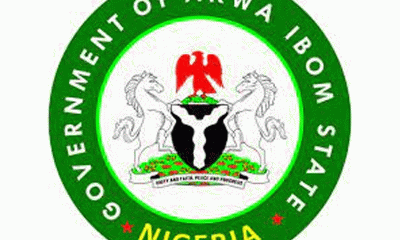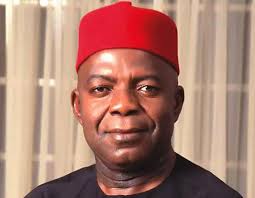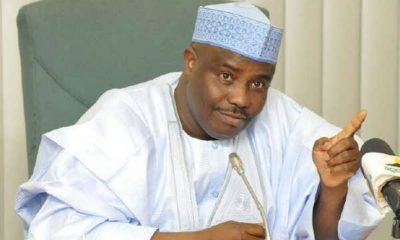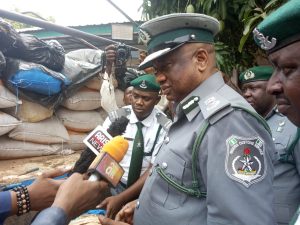NEWS
Touray Decries Nigeria-Bénin Border Infrastructure Decay

ECOWAS President, Dr Omar Touray, has decried the deplorable state of infrastructure at the Nigeria-Bénin Republic Seme border, in spite of the huge investment in them by ECOWAS.The President stated this during an official on-the-spot assessment visit to the Nigeria–Lagos Seme Border, which is one of West Africa’s busiest and most strategic corridors.
The visit was aimed at assessing how the ECOWAS Protocol on Free Movement of Goods and Services was being implemented and identify obstacles. Touray called for urgent reforms to safeguard the region’s free movement protocol, and pledged to deliver a full report and recommendations toward addressing the decadence and removing all cross-border obstacles.The Commission’s president also called on border security officials and national authorities to align more closely with ECOWAS protocols.“This is one of the busiest and most strategic border posts in West Africa, yet, we are faced with expensive facilities; scanners, lighting systems, and bridges that are simply not working. That is unacceptable.“We cannot justify millions spent on equipment that lies idle. Our citizens expect results, not excuses.“If a lightbulb goes out, ECOWAS should not be called to replace it. Member states must step up and take ownership,” he said.According to him, while ECOWAS is responsible for initiating infrastructure, the responsibility for maintenance lies with individual member states.Touray also decried the proliferation of checkpoints within member countries, arguing that it contradicted the spirit of ECOWAS free movement protocol.“Why do we have multiple customs and immigration posts for the same corridor?“It frustrates travellers, delays trade, and creates opportunities for corruption,” he said.The Commission’s president demanded transparency, and urged officials to crack down on unofficial payments.“We have received troubling reports of citizens being asked to pay without receipts.“This damages trust. If any fee is legitimate, it must be receipted. Period!,” he stressed.He further clarified that the protocol on free movement under the ECOWAS Trade Liberalisation Scheme (ETLS) does not eliminate the need for proper documentation.“Free movement does not mean no documentation; free movement does not mean a free-for-all.“The appropriate identity papers, security checks, and customs procedures remain necessary to balance openness with safety and order.“Our people must understand that they need valid identification to travel. Security and freedom must go hand in hand,” he said.Dr Ben Oramalugo, Comptroller of Customs, Nigeria Customs Service, Lagos-Seme Border, while briefing the President earlier, enumerated the challenges faced by the command.“We have scanners installed, but they are not working. Since I reported here on February 12, they have remained non-functional. These scanners can detect things human eyes cannot.“When you inspect cargo manually, you might miss drugs or dangerous goods hidden deep inside. We need your help to get these scanners working again.“There is also no light in the pedestrian passage, and criminals take over the area at night. There is no roofing for those passing through, and we do not have water in the offices.“Every morning, labourers fetch water in jerrycans just so we can function. This isn’t acceptable for such a significant facility,” Oramalugo said.Oramalugo said that there is no electricity at all in Seme Border as it is not connected to the National Grid, so they depend entirely on electricity from Benin and whenever their power goes out, they are left in total darkness.“This is Nigeria’s number one border, connecting the entire Francophone region, yet we are not connected to the National Grid.“This road tells the story of Nigeria. What people see here reflects on all of us,” he said.The senior customs officer also decried the plethora of checkpoints on the international corridor.“From here to Badagry, I have ensured there are only three customs checkpoints.“But there are still too many from other agencies. I appeal to you, let us enforce a maximum of three checkpoints total,” he said.Also speaking, Nigeria’s Permanent Representative to ECOWAS, Amb. Musa Nuhu, who was on the president’s entourage, said that the Seme border was critical to the ECOWAS free movement protocol.According to him, the challenges of infrastructure decay, overlapping security checks, and operational bottlenecks raised by border officials highlighted the gap between policy and implementation.“This is the busiest border in West Africa, in terms of passage of goods, people, and services, and if free movement is working in West Africa, it is in this border that we will be able to find out.“It’s good that they mentioned these issues for you to really understand practically what is happening along this very important border,” the ambassador said.He disclosed that President Bola Tinubu recently approved the setting up of a Presidential Task Force to dismantle multiple checkpoints in the country.“That committee has been set up under the authority of the Secretary to the Government of the Federation, and we will soon start working to address this issue,” he said.Report says that the visit enabled Touray to engage directly with community citizens on both sides, security operatives, and commuters, for him to understand the realities on ground.(NAN)NEWS
NBA Slams Ibom Air over Passenger’s Undignified Treatment
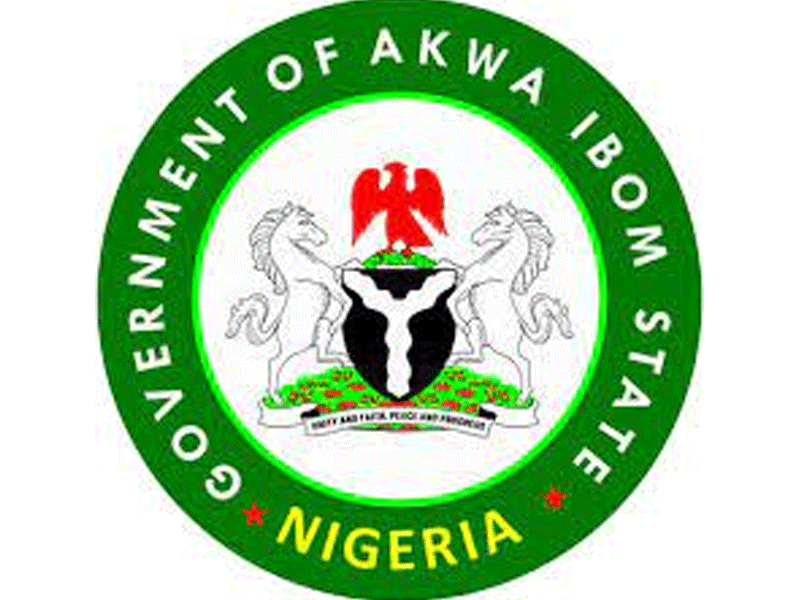
The Nigerian Bar Association (NBA) has condemned the treatment of Ms Comfort Emmanson aboard Ibom Air, describing it as reckless, unlawful and a grave violation of her right to dignity.This is contained in a statement signed by the NBA President, Mr Afam Osigwe (SAN) and the General Secretary, Dr Mobolaji Ojibara.
Report says that on Aug. 10, an incident occurred aboard an Ibom Air flight involving Emmanson. NBA described the manner in which Emmanson was removed from the aircraft as dehumanising.NBA noted that video footage showed an Ibom Air hostess blocking Emmanson’s exit from the plane.The association noted that the conduct could constitute false imprisonment and provocation, potentially escalating the situation.NBA expressed outrage over allegations that Emmanson was publicly stripped of her clothing, humiliated, filmed and had the footage circulated online.The association viewed the photographing, dissemination and online circulation of indecent images of her as both degrading and a serious invasion of privacy, constituting a criminal act.“Even if the incident had to be reported, the footage should have been blurred or edited in a way that did not expose her nudity to the public,” NBA said.The association stressed that those responsible for capturing and distributing the unedited footage must be identified and prosecuted.They warned that such acts erode public trust and undermine the rights of all citizens to be treated with dignity and respect.NBA considered the lifetime ban on Emmanson from flying Ibom Air or any other, as heavy-handed, legally and morally indefensible, and in breach of the principle of fair hearing.The association argued that only the relevant statutory regulator had the authority to suspend or restrict a passenger’s flying privileges, not private entities or airlines.The NBA demanded that Ibom Air lift the lifetime ban on Emmanson and issue a public apology.NBA urged the Minister for Aviation, the Nigerian Civil Aviation Authority, the Federal Airports Authority of Nigeria, and relevant security agencies to conduct a thorough investigation and sanction those responsible.The association pledged to provide Emmanson with pro bono legal support to protect her rights and seek redress for the violations she suffered. (NAN)NEWS
NLC Urges Crude Sales to Dangote in Naira
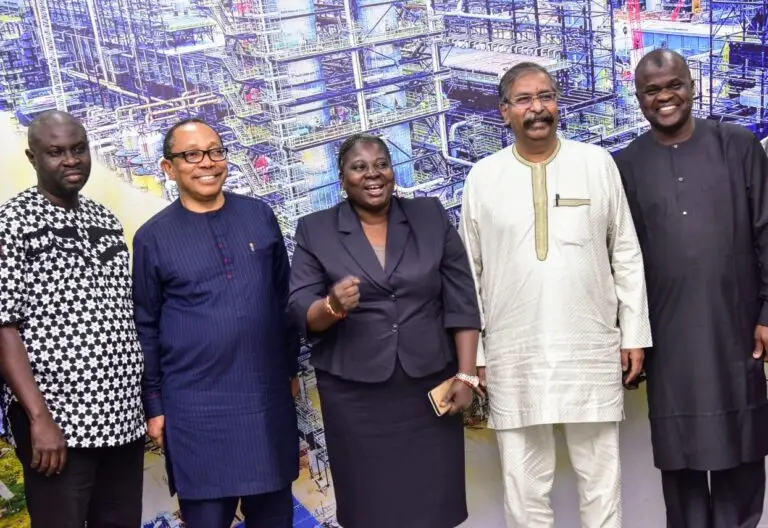
The Nigeria Labour Congress (NLC) Lagos State chapter, has urged the Federal Government to prioritise selling crude oil to the Dangote Refinery in Naira. Lagos NLC Chairperson, Funmi Sesi, made the appeal during a Tuesday tour of Dangote Petroleum Refinery and Fertiliser Ltd.
by Labour Writers Association of Nigeria (LAWAN) members and NLC officials. Sesi said compelling the refinery to import crude or buy locally in dollars undermined the promise of reduced fuel prices for Nigerians. “This country has crude oil in abundance. Why is Dangote still importing crude or paying in hard currency for locally produced crude?” she asked. “If the government truly wants to lower fuel prices and support local refining, it must sell crude oil to Dangote in Naira,” she added. According to her, sourcing crude locally in local currency would significantly reduce operational costs and lead to a sustainable drop in fuel prices. The union leader praised Dangote Ltd. for creating a transformative national asset that helps bridge Nigeria’s fuel supply gap, creates jobs, and boosts industrial capacity. She said the scale and strategic importance of Dangote Group’s investments were already delivering measurable benefits to Nigerians. “Today, we have seen the refinery, the fertiliser plant, and other investments in this axis. The size and impact are enormous and impressive,” she said. She described the projects as clear efforts to improve essential product availability, create jobs, and advance Nigeria’s industrialisation. Following the removal of petrol subsidies, Nigerians faced a sharp rise in Premium Motor Spirit (PMS) costs. She said Dangote’s refinery entry helped stabilise prices. Sesi noted that Dangote’s operations had significantly lowered PMS and other refined product prices, demonstrating private sector leadership in the industry. “With a 650,000-barrel daily capacity, this refinery can serve Nigeria and West Africa. We also saw large vessels exporting fertilisers to other countries,” she said. She praised Aliko Dangote for building a fully operational, world-class refinery that meets domestic and regional refined petroleum needs. Sesi also commended the production of Euro-5-compliant fuel with reduced sulphur content, aligning with global environmental standards and enhancing Nigeria’s market reputation. “This is the pride we want — a Nigerian company producing at global standards, changing the narrative, and boosting our global standing,” she said. She also lauded Dangote Fertiliser Company, which already exports to international markets, urging government support to improve food security and reduce imported agricultural inputs. Dangote Industries Vice President, Oil and Gas, Devakumar Edwin, said the refinery was addressing Nigeria’s dependence on imported refined products. He said it was setting a foundation for a sustainable, competitive refining industry that would benefit the national economy. Edwin revealed plans to deploy 4,000 Compressed Natural Gas (CNG)-powered trucks to distribute refined petroleum products nationwide. He said the CNG trucks would ensure domestic refining benefits and lower fuel prices are fully passed to Nigerian consumers. According to him, the CNG fleet would reduce logistics costs — a major contributor to pump prices. “The deployment of 4,000 CNG-powered trucks will help pass down domestic refining benefits and lower product prices to consumers,” he said. He clarified the aim was to improve distribution efficiency, not displace existing operators. Edwin added that CNG trucks are environmentally friendlier and cheaper to run, helping to make refined products more affordable nationwide. (NAN)Foreign News
Gaza: UNESCO Condemns ‘Unacceptable’ Killing of Journalists

The United Nations Educational, Social and Cultural Organisation (UNESCO), has strongly condemned the killing of six journalists in Palestine by an Israeli drone on Sunday.UNESCO’s Director-General, Audrey Azoulay, made this known in a statement on Tuesday.“I condemn the killing of journalists Anas Al-Sharif, Mohammed Qreiqeh, Ibrahim Zaher, Mohammed Noufal, Moamen Aliwa, and Mohammed Al-Khaldi and call for a thorough and transparent investigation, she said.
Five of the six worked for the influential Qatari-based media organisation, Al Jazeera. Anas Al-Sharif and Mohammed Qreiqeh were on-air correspondents, while Ibrahim Zaher, Mohammed Noufal and Moamen Aliwa worked as camera operators.Mohammed Al-Khaldi was a freelance photojournalist.They were reportedly killed by an Israeli attack on a tent used by media personnel at the entrance of Al-Shifa Hospital in Gaza City.The Israeli Defense Forces (IDF) alleged that the 28-year-old al-Sharif was a serving Hamas operative.Al Jazeera strongly denies this, describing the attack as an “assassination” and “yet another blatant and premeditated attack on press freedom.”The UN Human Rights Council-appointed independent expert on freedom of expression had on July 31 denounced an Israeli military spokesperson’s “repeated threats” and “unfounded accusations” against Al-Sharif.The council had described the allegation as “a blatant attempt to endanger his life and silence his reporting” in Gaza.Two Special Rapporteurs on Tuesday described the killings as “an attempt to silence reporting on the ongoing genocide and starvation campaign” in Gaza.“It is outrageous that the Israeli army dares to first launch a campaign to smear Anas Al-Sharif as Hamas in order to discredit his reporting and then kill him and his colleagues for speaking the truth to the world,” they said.The experts demanded an immediate investigation into the killings and full access to international media, which Israel currently bars from entering Gaza.Special rapporteurs and other independent experts are appointed by and report regularly to the Human Rights Council.They work in their individual capacity, are not UN staff and receive no payment for their work.UNESCO chief Azoulay stressed that targeting journalists reporting on conflicts is unacceptable and violates international law.She also reiterated her call to respect UN Security Council Resolution 2222, which was unanimously adopted in 2015 to protect journalists, media professionals, and associated personnel in conflict situations.UNESCO reports that since Oct. 2023, at least 62 journalists and media workers have been killed in the line of duty in Palestine.This excludes deaths in circumstances unrelated to their work, while OHCHR reports that at least 242 Palestinian journalists have been killed in the same time frame. (NAN)
